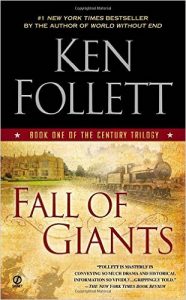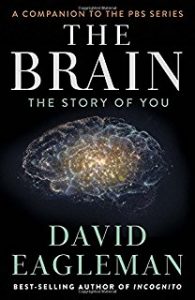I am pretty sure no one cares what I am reading these days, but then again I started blogging some 8 years ago knowing that no one would care so I am used to it. Anyways, here’s a list of my past commute/bedtime/toilet-time reads. Toilet-time?! Yeah, a classic example of TMI (too much information), but man’s gotta read, and time is always an issue. :-)
 | Michael Lewis at his best. So I actually started out by reading the Thinking Fast and Slow by Danny Kahneman and Amos Tversky, and then in pursuit of more of their books I found this project by Michael. It's a little weird one, as it really just recounts the life and work of the two great social scientists. From my previous reading of Lewis' work, I kind of expected his own twist on the studies of human behaviors and their biases, but instead we got an ode to Tversky and Kahneman. Nothing wrong with that. I loved it. More than that book though I just loved the research and ideas that they were exploring. It's kind of funny to finally read the actual, original research, that everyone else that I have been reading about up to this point actually draws from: Eagleman, Lewis, Sunstein and Thaler etc. They all borrowed their ideas from these two geniuses of social sciences. If you don't know how biased your decisions are in everyday life, and are willing to find out...got to read it. It's also a much smoother reading than the one below from Tversky and Kahneman themselves. |
|---|---|
 | This is one of those books that just dawns on you. I have read this breathtaking account of inner working of human mind in the process of decision making, and was startled. It's truly fascinating to find out in how many different ways we are biased and how little control we have over our own decisions. It's at the same time fascinating and exciting, but also terrifying. I loved every moment of this book. It's also one of these books, that when you read it, you immediately realize where did all other social science authors get their ideas. I love reading Thaler, but Thaler has been clearly borrowing some stuff from these two. Regardless, great reading, and also a bit of a brain stretcher as there are some great everyday examples of games that you can play with yourself and friends to see how biased we are. Damn, I never thought that I am not really in a driver's seat when it comes to decision making. Nice stuff. |
 | David and Goliath is your classic Malcolm Gladwell reading. It will take you on a journey through a handful of people's surprising stories of success and defeat. Malcolm is trying to make a point, that as much as people have turned the story of David and Goliath into a story about overcoming obstacles and succeeding in spite of the disadvantaged position that we are in, it actually was not - or should not. In this book he presents some compelling arguments about the fact that often what we think of advantage, can actually be a disadvantage and vice-versa. He's clearly arguing that quite often it's the so called the underdog, that goes on to achieve great things, while those in position of power falter mightily. I especially like the story of Vivek Ranadive, the now Sacramento Kings owner, and his coaching technique that took everyone by surprise. Overall, it's a great book, and I would really recommend it. |
 | I got these "reading runs" that I go on. They are basically a little ruts that I get into after I read one book, and then in that book I find something of special interest, then I will basically look up another book on a similar subject. This particular one, came about when I was reading Sowieci by Piotr Zychowicz. I was basically never, really into post war history of Poland - now I know why. Before I emigrated from Poland and moved to USA, I remember learning next to nothing about the the aftermath of WWII and times leading up to what was called the modern history and era right before the collapse of Soviet Union. That lack of education on that particular subject, is probably why I never delved deeper into the subject. It's even stranger, because my parents lived in the times, described in this book, so I should at least be able to have some meaningful conversations about it with them, or my teachers at school. I think it's a great shame that we never broached that subject in class. Anyways, now was the time to get down and dirty, and read something about the 70s and 80s in Poland, and martial law implemented by Gen. Jaruzelski. Atomowy Szpieg is a book about a different character from that era, Col. Kuklinski. I must have heard the names, of both of these men before, but mostly from mainstream media, and never really paid much attention to either. Only after reading this book, do I know exactly what roles these two men played. I believe others are not as ignorant to that period of Polish history as I was, but if you somehow don't know, who Col. Kuklinski was, it would be a good idea to read this book, as it's a great and quite honest take on his life and career. |
 | I am very much a fan of Piotr Zychowicz. After my first book of his - Obled '44 - I was totally hooked on his unapologetic style. Sometimes, slightly controversial, but never outlandish, his theories often make you re-think your assumptions about the events of WWII and soon after. Sowieci, is a second book in a series where he publishes short talks and previously unpublished articles on the topic of Soviet Union and Communism. This is by far the most anti-Communist book that I have ever read. There is zero justification or sugar coating of the insane ideology that Communism was. People tend to forget that Communism is easily the most deadly form of oppression that has ever existed, just because at its height it existed alongside Hitler's Nazi movement. Believe it or not, some will argue that Communism was in a league of its own when it comes to terrorizing human populations. |
 | Now this is something that I just finished reading recently. I know it looks a little heavy if you just read the cover, but it's actually a pretty well written story. It's more of a narrative/timeline of events as they were unfolding in the 70s/80s, when some of the most brilliant scientists of our century were grappling with issues of complexity. It's remarkably well written, quite captivating story, and totally worth reading. I came about it from reading Flash Boys (see above). Some of the ideas explained in this book are just otherworldly interesting and totally relevant for any technogeek like myself. I mean who doesn't want to know about origins of genetic algorithms or artificial intelligence. |
 | This was a book recommended to me by a friend of mine Mostapha Sadeghipour Roudsari. This one Saturday afternoon we were sitting in a Polish restaurant (yes! I was introducing Mostapha to Polish food), chatting about Open Source, things that motivate us...life in general, while Mostapha recommended I read it. Since then, I am a huge fan of Adam Grant. He's written another book called Originals, which I will get to later, but this is totally worth the read. If you were like me, feeling like you want to share, blog, teach, but were not sure if it's such a good idea to just give away all of your work, it's a book for you. |
 | The Fall of Giants came up during one of the conversations that I had with Anna Garcia Puyol at ACADIA conference some two years ago. It's basically a fiction novel, following lives of multiple characters from time when they were kids growing up in their respective countries to when the First World War broke out and after. I have to say, that I had no clue that it was going to be a fiction, and if I knew, I am not sure I was going to read it, but then I was pleasantly surprised. It's not only a great read, but it was an educational one too. Mr. Follett has brilliantly managed to weave his fictional life stories with accurate historical facts, and events of the WWI and time running up to it. I was quite pleasantly surprised, and really pleased having finished the book. I am not sure, I will read the rest of the trilogy, but it's not bad. |
 | Well, this is something that will not exactly come handful for most of my readers, but I am Polish and I do enjoy an occasional book in my native tongue. Piotr Zychowicz is a historian that writes quite controversial books and I totally fell in love with his take and account of the Warsaw Uprising in 1944. Since then I have been an avid reader of his books. They are mostly accounts of political events that took place during WWII. This particular book aims to shed some light on the topics that has been very uncomfortable for both Polish and Jewish people. It's a book about anything from Jewish Communists, Jews serving in German Army, how Polish government trained and armed Jewish terrorists as well as the story of Warsaw Ghetto uprising and many more. It's quite a controversial book, but one that should be read only if to get the full picture of the tragedy that transpired during WWII. |
 | This was a book recommended to me by a friend of mine from Sydney - Alessandra Fabbri. I have to say, that for a Neuroscientist, Mr. Eagleman has a knack for telling a story. This is a story of a human brain, and how it works. I really appreciate reading this book as it has given me plenty of insight into the mysterious ways our brains function. Take for example the idea of 10,000 hours needed to become a master of some field or craft. It has since been brought up in numerous books that I have read, but none of them explains it so compellingly and thoroughly. I found, that it ties back nicely with some of the biggest struggles that scientists in Mitchell Waldrop's - Complexity book have been struggling with when trying to model the behavior of a complex neuron network. It's quite a read, and I would recommend it to anyone. |
 | Next is a book about the Internet Revolution. I picked it up in one of those "streaks" of infatuations I get with a certain author. Yes, I did get infatuated with anything written by Michael Lewis. This is a short book, and tells the story of a few people, young and old, and how Internet has changed their lives, or in some cases how they changed the lives of millions through internet. It's not your "typical" Michael Lewis read, but more of an account of Internet Boom events. |
 | Once I was done with the "Next" by Michael Lewis, I kind of wanted to read another one of his takes on Internet technology. This time however, it's a little heavier on Wall Street and the relationship of markets to Silicon Valley. It's a perfect book if one needs to understand how we came to live in the world so dominated by the technology companies from one particular region of California. The book itself follows the story of one Jim Clark, who many of us technogeeks might be familiar with as the founder of Netscape. Netscape was the typical Internet Boom child, but also later a great example of Open Source initiative. Some of you might know it as Mozilla these days. Either way, I digress. This book tells the story of Jim Clark and Internet Revolution. I loved it, and would totally recommend it to anyone. |
 | Ok, so I ran into Malcolm Gladwell's name when I was reading Adam Grant. He have mentioned Malcolm's name a handful of times, and since I usually like to take notice of at least a few sources that inspired certain great books, I went ahead and read a few of Gladwell's books too. The Tipping Point was a story of how ideas spread. Now, I am personally interested in this particular topic, since it's been a passion of mine to try and spread the culture of Open Source collaboration amongst my peers in the AEC industry, so this particular book was a great read for me. It touches down on a few key ideas behind what it takes to make something take off, or "tip". Basically it's sort of a guide to what scientists call the tipping point phenomenon. |
 | Now, Michael Lewis is a literary genius! I am not sure what it is about his writing, but I am totally captivated but all of his books. This particular one was easily one of the best reads. I think I tackled it in a single day. If you have any interest in our current/modern economy and machinations of Wall Street, then it's a book for you. I was never quite interested in Wall Street, until I read Michael's The Big Short, which I have read because I watched the movie, but either way, I was hooked. This is a story of how computer technology and internet gave rise to high-frequency trading and how that in return was exploited by those with fastest internet connection. Extremely well written, fantastic narrative and just enough technology mixed in to keep me glued from cover to cover. |
 | Don't ask me why. I have basically been reading John Grisham since I was a teenager living in Poland. I think I accidentally stumbled upon his "Time to Kill", and I was instantly hooked. I remember when I moved to US, I would read his books that I already read back in Poland, but this time in English so that I can pick up some vocabulary, while already having understood the plot. Anyways, long story short, I haven't read his books for a few years, and picked this up to give myself a break from my typical reading list. This was a typical John Grisham book. A criminal/courtroom drama type stuff, that is interesting enough to keep you turning the pages, but also light on its feet so that you are not sweating. It was a nice read, albeit a short one. |














